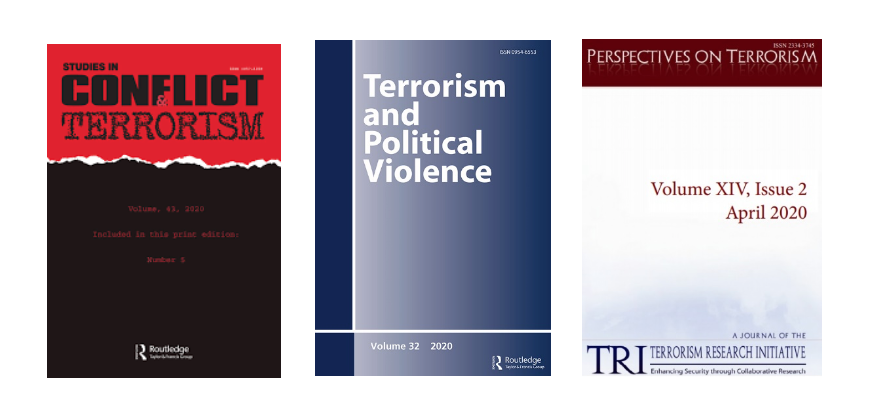Blog
Blog
False Commentary and Blinkered Perspectives Hampering TCO Progress
June 17, 2020This is the first in a series of posts and responses addressing the EU’s regulation on online terrorist content; the second post is HERE and the third HERE. [Ed.] By Lucinda Creighton Never before has a situation demonstrated such a broad consensus for taking extra measures to regulate content online as the coronavirus has. At the same ...
Blog
Intra-EU Disinformation: the French Website Managed by a Polish Far-Right Network
June 10, 2020By EU DisinfoLab FranceLibre24.net is a site that presents itself as a “French news website”, hiding both the fact that it was created in Poland in July 2019, and that it’s heavily tied to a controversial Polish far-right media network (Najwyższy Czas! & Wolnosc24). Owners of the website almost exclusively publish French-language content on polarising ...
Blog
Criminalising the Possession of “Terrorist Propaganda”: A Human Rights Analysis
June 3, 2020Want to submit a blog post? Click here. By Sapan Maini-Thompson The Home Office is proposing to legislate for a new criminal offence relating to the “possession of the most serious material glorifying or encouraging terrorism”. This follows a suggestion made by the Chief Coroner, HHJ Mark Lucraft QC, in his report concerning the 2017 ...
Blog
Pakistan’s Online Harm Rules: Rights to Privacy and Speech Denied
May 27, 2020By Aryan Garg In January 2020, the federal cabinet of Pakistan approved the Citizen’s Protection (Against Online Harm) Rules to regulate social media platforms for streaming content related to terrorism, extremism, hate speech, sedition, fake news, defamation, violence, and national security. Pakistan is not the first country that has attempted to regulate social media platforms. ...
Blog
How Extreme is the European Far-Right: A Twitter Analysis
May 20, 2020Read in German This blog post presents an edited section from the full report, available in both English and in German [Ed.]. By Reem Ahmed and Daniela Pisoiu A total of 381,912 tweets were collected through the Twitter application programming interface (API) from 175 EU-wide accounts that were identified as right-wing extremist (specifically, accounts with ...
Blog
Wie Extrem ist die Rechte in Europa: eine Twitter-Analyse
May 20, 2020Read in English Dieser Blogeintrag enthält einen Abschnitt aus dem vollständigen Bericht, verfügbar in englischer und deutscher Sprache [Ed.]. Von Reem Ahmed und Daniela Pisoiu Insgesamt 381.912 Tweets wurden über die Twitter-API (Programmierschnittstelle) von 175 EU-weiten Accounts gesammelt, die als rechtsextremistisch identifiziert wurden (insbesondere Accounts mit offen neo-nazistischen und White Supremacist Themen). Die Tweets wurden ...
Blog
Comparing Topic and Tone of Tweets by Far-Right Political Parties Versus Right-Wing Extremist Movements in the Netherlands, UK, and Germany
May 13, 2020By Suzanne Mos The Internet is a good place to get a sense of what topics certain groups or movements deem important. In this Blog post, I present the findings of comparative mixed methods research addressing the question ‘How does the use of Twitter by far-right political parties differ from right-wing extremist movements in terms ...
Blog
Where to Publish Academic Research on Online Extremism and Terrorism?: What We Can Learn from Journal Article Entries in VOX-Pol’s Online Library
May 7, 2020By Louise Laing and Maura Conway One of the questions we get asked quite often at VOX-Pol—by not just PhD students and early career researchers, but established scholars too and, in fact, that we quite often ask ourselves! — is ‘what are appropriate academic journals for publication of research on online extremism and terrorism?’ A generic ...
Blog
How do Social Media Users Talk about Terrorism Online?
April 29, 2020By Dr. Alton Chua and Dr. Snehasish Banerjee Terrorism remains a persistent challenge worldwide. While portrayed as a threat to society and human civilisation by mainstream media, terrorists sell terrorism as freedom fighting via social networking sites and private messaging platforms. However, the actual workings of terrorism are largely shrouded in secrecy. For the curious, a ...
Blog
Kimberly Pullman: A Canadian Woman Lured Over the Internet to the ISIS Caliphate
April 22, 2020By Anne Speckhard “If I was going to die at least I could die helping children. [It’s] illogical that you are entering a war zone that you don’t know anything about … I felt if I did something good it would overwrite the bad that had happened.” — Canadian 46-year-old Kimberly Pullman, speaking about her decision ...








